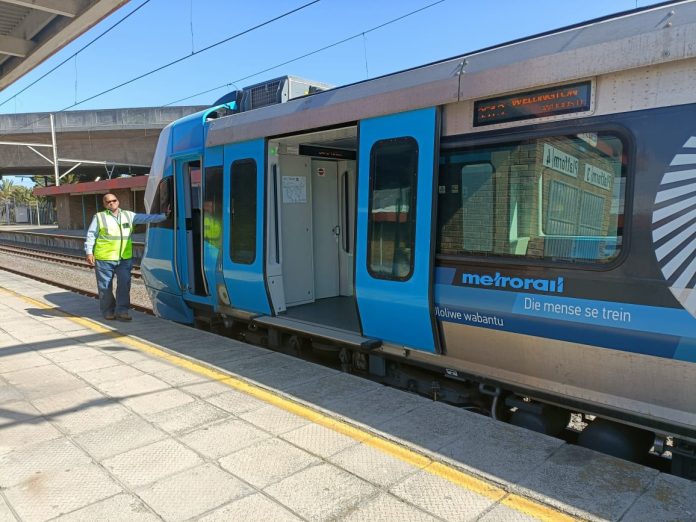President Cyril Ramaphosa says the devolution process of passenger rail is on track, amid calls from Cape Town Mayor Geordin Hill-Lewis for a speedier devolution of passenger rail to the metro.
Answering questions in Parliament yesterday Ramaphosa outlined the time frames and priorities that is specified in the White Paper on National Rail Policy, which was approved by Cabinet in March 2022.
He says there are certain short-term objectives to be achieved by 2024, medium-term objectives up to 2030 and long-term objectives up to 2050.
The Development of the Devolution Strategy is one of the short-term interventions, which Ramaphosa says is to be completed by 2024.
The National Rail Policy makes provision for the assignment of responsibility for managing all urban rail functions to metropolitan municipalities, including planning, funding, procurement, operations and maintenance.
Ramaphosa says this will be initiated once the strategy for devolution of urban rail has been concluded and approved.
The Department of Transport will undertake consultations with all Provincial Departments responsible for Transport, Transport Authorities, National Treasury, all affected Metros, the South African Local Government Association, the Gautrain, the Passenger Rail Agency of South Africa (PRASA), Transnet, the Railway Safety Regulator, commuter forums in all the regions, unions in the railway environment, and business chambers in the affected provinces.
In addition, a National Steering Committee has been established to guide all major deliverables of the project.
Mayor Geordin Hill-Lewis says the City’s call to join hands on rail devolution is genuine.
Our proposal for a joint working committee is made on behalf of hundreds of thousands of commuters in Cape Town, and especially lower income households, who need the trains to run.
Previously, Hill-Lewis set Ramaphosa an ultimatum to respond to the City’s request for a joint working committee to be formed, or the City would embark on intergovernmental dispute mediation.
We have been trying to reach out for months, and after an earlier commitment in June to respond to us soon, we have still heard nothing. Research shows lower income families in our city would save R932 million a year with working, efficient trains. The absence of trains was severely felt not only during the taxi strike, it is a daily absence sorely felt by a great many in our city, with the collapsed passenger rail system only transporting around 2% of commuters.
The City’s ongoing Rail Feasibility Study, which aims to chart the way to devolution, also shows that functional rail will sustain over 51 000 jobs and add R11 billion to the local economy each year.
Hill-Lewis says Cape Town stands ready to provide input to the National Devolution Strategy.
ALSO READ: Mayor seeks clarity on rail devolution





